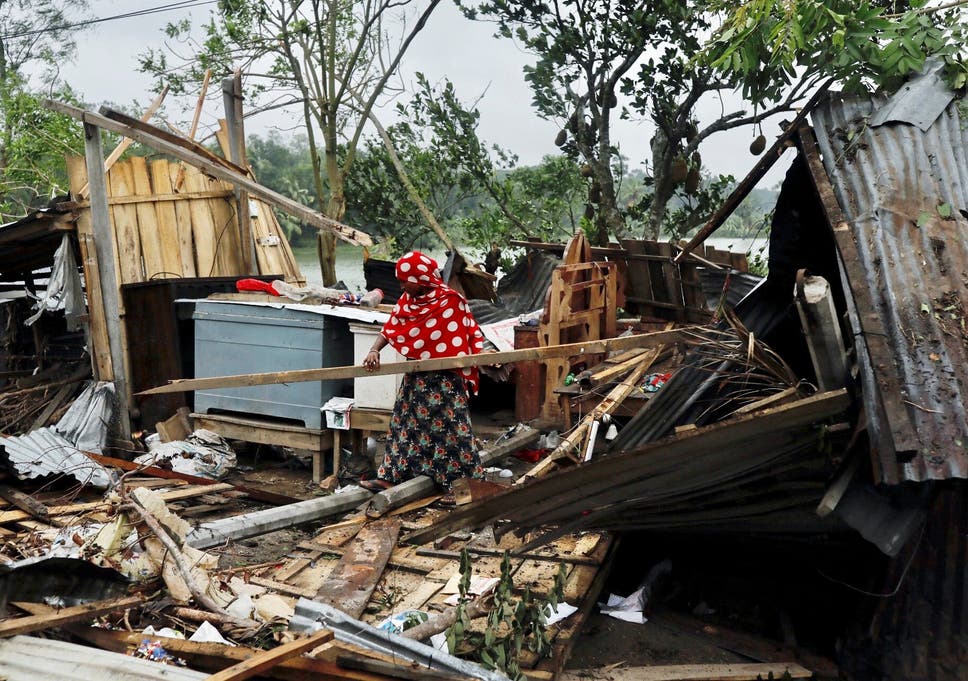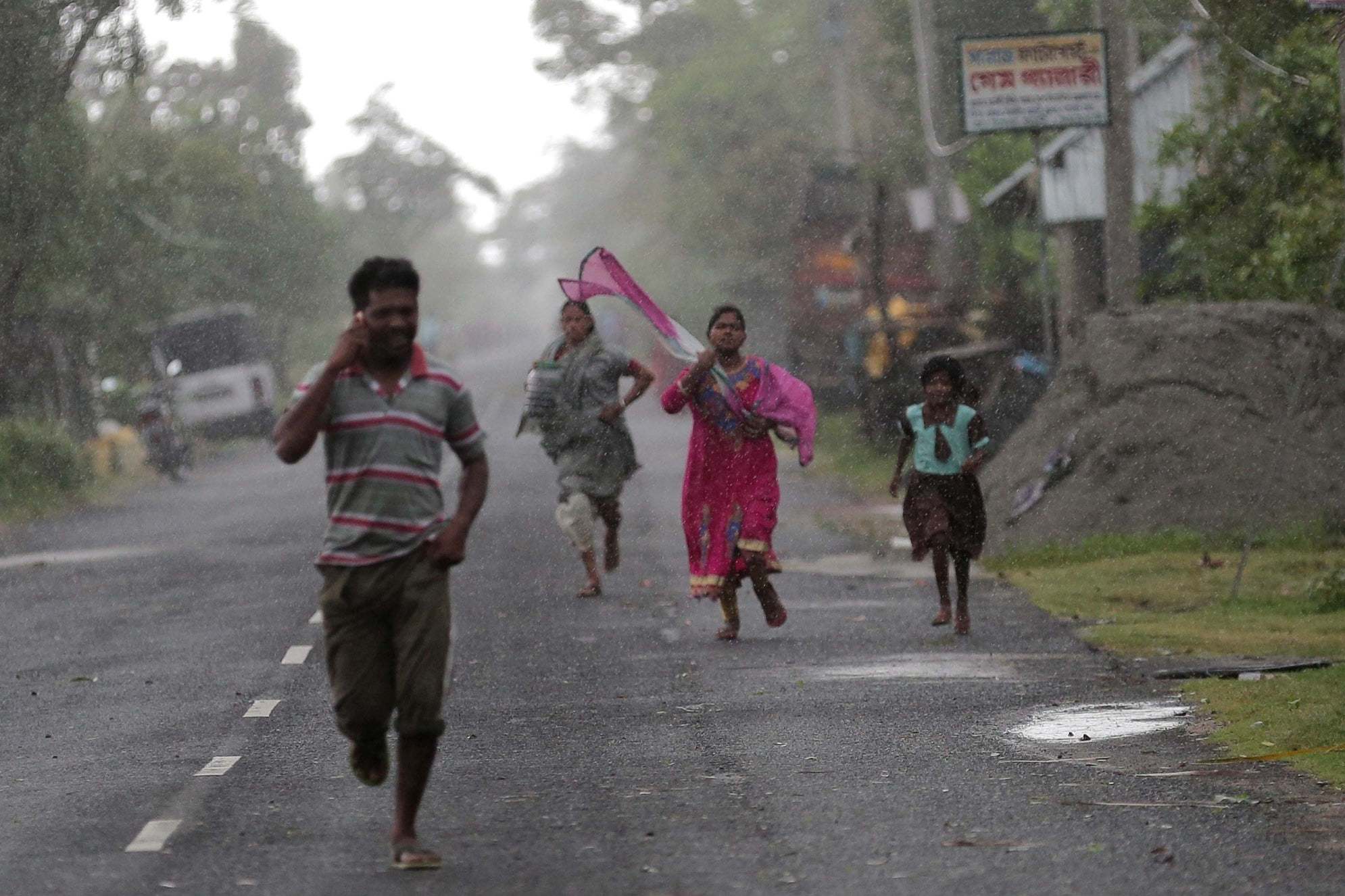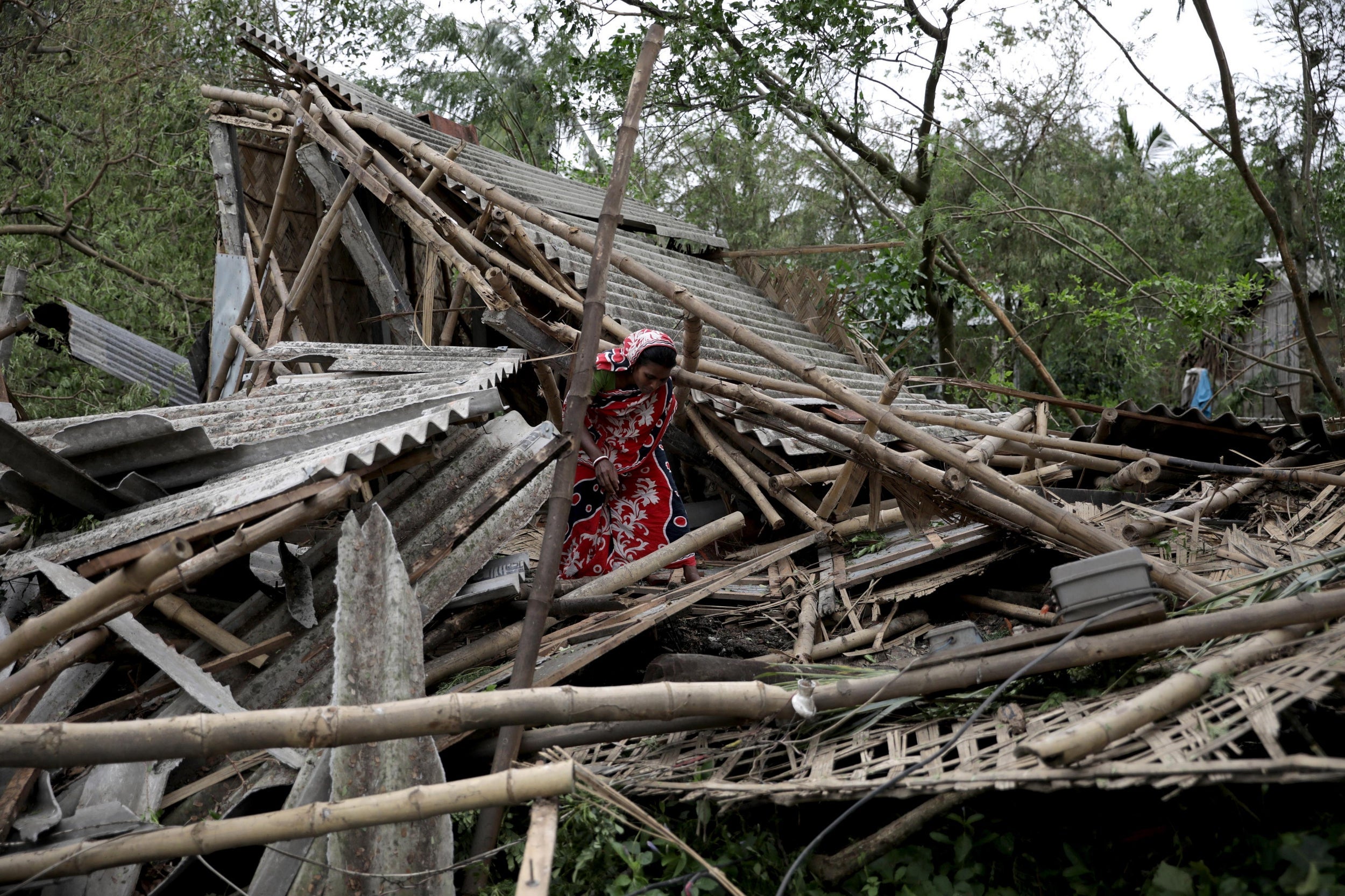
When the blistering rains had finally stopped, Satya Pal got a call from his nephew: his family were safe, housed in a government shelter, but he had lost his house.
“Our home – a hut made of mudbrick with a tiled roof – was blown away,” the NGO worker tells The Independent.
Since making landfall Wednesday afternoon, Cyclone Amphan – the most severe storm recorded in the area this century – has battered the coastline of India’s eastern state of West Bengal and killed at least 84 people.
With phone connectivity broken and powerlines down, Pal, like his colleagues, sweated through the night, unable to venture out into the torrent of rain and blistering wind.
“Being cut-off from family with the power gone, literally and figuratively in the dark, I was terribly anxious.”
He could only wait out the storm out at the centre where he worked in Parwatripur, in the Sundarbans, West Bengal, and pray that the embankments protecting his village would hold.

They didn’t. But the state evacuation measures, which huddled masses into schools, government buildings and shelters built eleven years ago due to a similar cyclone, proved to be life-saving.
Saaid Sahansa Akbar described the damage as unparalleled.
“Soon after the storm started, all we could see was water – both rain and seawater flooding the area. The wind was like a constant scream that sent chills down my spine.”
Akbar joined the throng of villagers cramming into shelters, forced to ignore the social distancing measures required by the state in the wake of Covid-19.
“Where I was, there were around 2,500 people. Around 95 per cent of homes were taken by the storm,” he said.
Through the night, the howling of the storm was broken only by the sound of trees being ripped from their roots, the tearing of tin roofs from houses, and the clang of tiles as they hurled through the air.
Rabindra Derra, the deputy head of the Digambarpur Village Panchayat in West Bengal, said that around 15,000 homes had been damaged and the entirety of the some forty thousand residents of his village had been affected.
Houses were crushed by felled trees and many were split into pieces by the torrents of water blasting through mudbrick walls.
“The people of the Sundarbans have survived many storms, even cyclones, but we’ve seen nothing like this,” says Derra.
Calling the calamity worse than coronavirus, the chief minister of the state, Mamata Banerjee, has appealed for urgent help.

“Entire south Bengal is hit. South Bengal is finished. I would request [the central government] to provide humanitarian relief.”
Small bodies of water trace outlines around land where most people earn a living farming vegetables and selling harvests from their rice paddies. Others raise fish in freshwater ponds, and when flooding occurs from tropical storms, the salinisation of these areas from seawater is devastating.
“Nothing can be harvested after seawater enters the soil, and our fish die very quickly under such conditions,” says Derra.
For many, another cyclone is the realisation of their worst nightmares.
“We are hit twice during such storms,” says Akbar. “When Cyclone Aila hit, not only were our homes broken but diseases such as cholera, typhoid and malaria also became rampant as rotting carcass of fish and other wildlife polluted our water.”
Cyclone Aila hit the Bay and Bengal in May 2009, reaching speeds of up to 120 km/h and killing more than 330 people.
“What will these people eat when government rations run out,” he cried out.
Pal, himself involved in relief work, says he has no idea how long it will take to rebuild.
The only thing that he knows for certain is that he and his community will all have to start over. Yet again.







